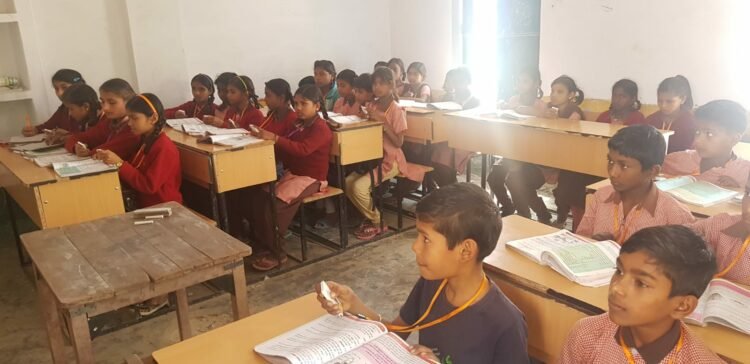Technology will be a key enabler for learning in Rural India and will make learning and teaching more efficient and enjoyable. Companies like WNS Global Services, TagHive and CGI Inc are coming forward to promote smart learning.
Mumbai-based WNS Global Services Private Limited (WNS) is helping children through its computer-aided learning programme, CSR Lead, Sherin Ali told India CSR Network. The business process management company does its CSR activity through WNS Cares Foundation.

The foundation is working with 9 rural schools in Mumbai and 5 in Vizag, Ali said. The foundation has provided digital rooms along with audio-visual contents to the schools. It also periodically sends volunteers to conduct life skills programmes in the field of art & craft, health & hygiene and communications, she added.
WNS Global’s countrywide CSR activity spans across seven cities viz. Mumbai, Pune, Nashik, Vizag, Chennai, Bengaluru and Gurguram. “We are working with 200 schools in India. We have six mobile library vans in Mumbai, Pune, Nashik, Chennai and Vizag,” Ali said.
TagHive has piloted an edtech solution with over 1,000 students, Pankaj Agarwal, chief executive officer (CEO) and founder of the company told this news service.
“Rural schools need technologies for better teaching environment, to empower teachers and to motivate students towards regular attendance thus helping these students achieve better learning outcomes,” Agarwal, said emphasizing the importance of the technology-based solutions.
TagHive is a technology company which designs innovative digital solutions for kids by merging real and virtual worlds for interactive learning experiences.
Technology can also play a useful role in mitigating the teacher shortage problem. While the Pupil-Teacher Ratio (PTR) has improved from 32 in 2009-10 to 24 in 2015-16, around a lakh schools continue to have lone teachers, according to an article published in Forbes.
As of 2016, 907,585 posts for teachers are lying vacant in elementary schools and 106,906 posts in secondary schools, the article said.

Digitisation of education could facilitate delivery of information to several remote locations simultaneously.
The mobile phone revolution has actually made it easy for children even in the remote areas to accept and adopt technology, Ali said. Learning has improved now as children are not mugging-up things but understanding things through visualizations, she added.
Agarwal said most smart learning solutions were expensive and catered to either in-classroom learning or outside-classroom learning.
“We need smart and affordable technologies that can capture in-classroom learning data and use that data to enhance the learning of kids when they are at home or at the learning center, after school,” Agarwal said. Learning will become more efficient then, he added.
He also underscored the importance no-frills solutions which could work with limited infrastructure and poor internet connectivity. Smart solutions could even help those teachers who have limited exposure to technology, Agarwal further said.
CGI Inc’s CSR Director for the Asia Pacific SBU, Nirbhay Lumde pointed to the great divide between the learning abilities of the children in rural and urban centres. “It does have implications for building a just and equitable society as envisioned in the Constitution,” Lumde cautioned.

Lumde calls for a “judicious use of technology” as “overdose of technology could be a letdown in rural education”. He said human resources and “more so teacher capacity building” was critical to rural education.
Terms & Conditions: India CSR Network does not permit other Websites/Agency to copy or reproduce or reprint the above article/feature in any form or means.







